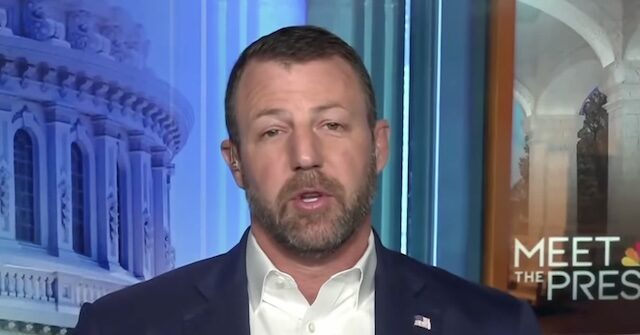In a recent interview on NBC’s “Meet the Press,” Senator Markwayne Mullin (R-OK) emphasized the necessity for the U.S. Senate to have access to the House Ethics Committee’s investigation involving former Congressman Matt Gaetz. The discussion centered around the potential appointment of Gaetz as attorney general by President-elect Trump. Moderator Kristen Welker opened the dialogue by acknowledging Mullin’s trust in Trump’s decision-making, while also highlighting his previous criticisms of Gaetz’s character. This juxtaposition set the tone for a critical examination of Gaetz’s qualifications amidst ongoing ethical concerns.
Mullin acknowledged the differences he has had with Gaetz, which are well-documented. He conveyed his respect for Trump’s authority to appoint individuals but reaffirmed the Senate’s constitutional responsibility to advise and consent on such nominations, as stated in Article 2, Section 2 of the U.S. Constitution. He asserted that Gaetz would be subject to the same rigorous scrutiny as any other candidate seeking confirmation for an important position like attorney general. Mullin’s remarks underscored the Senate’s pivotal role in overseeing the appointment process and ensuring the integrity of nominees.
The conversation quickly pivoted to the impending release of the House Ethics Committee’s findings regarding Gaetz’s alleged misconduct. Welker pointed out that Gaetz resigned abruptly just before the report was due to be made public. This sudden resignation raised eyebrows within the political community and prompted questions about the timing and implications of the report. Senator Mullin indicated that he and many of his colleagues, particularly on the Senate Judiciary Committee, were keenly interested in examining the findings of the investigation to inform their decision regarding Gaetz’s candidacy.
When pressed about whether the findings should be released, Mullin responded decisively, asserting that access to the report is essential for the Senate’s deliberations. He acknowledged the sensitive nature of such documents, suggesting that the decision on public release requires careful negotiation. However, the core takeaway from his comments was clear: the Senate’s obligation to be informed and thorough in its evaluation process should take precedence. This position reflects a broader call for accountability and transparency in governance.
The dialogue surrounding Gaetz’s potential nomination highlights a significant tension between party loyalty and ethical accountability. While Mullin expressed respect for Trump’s prerogatives, he also reminded viewers of the importance of due diligence in confirming nominees. This conservative balance speaks to the ongoing struggle within the Republican Party between upholding individual loyalty to the party and adhering to the moral and ethical standards voters expect from their leaders. Mullin’s stance illustrates a recognition of this conflict while advocating for responsible governance.
In summary, Senator Mullin’s comments on the “Meet the Press” convey a commitment to ethical scrutiny within the political nomination process, emphasizing the Senate’s integral role in maintaining accountability. His insistence on accessing the House Ethics Committee report involving Gaetz demonstrates a desire for transparency and informed decision-making. As the political landscape continues to evolve, the implications of these ethical considerations will likely shape future legislative actions and party dynamics, urging lawmakers to navigate the delicate relationship between support for party leadership and the integrity of the democratic process.

